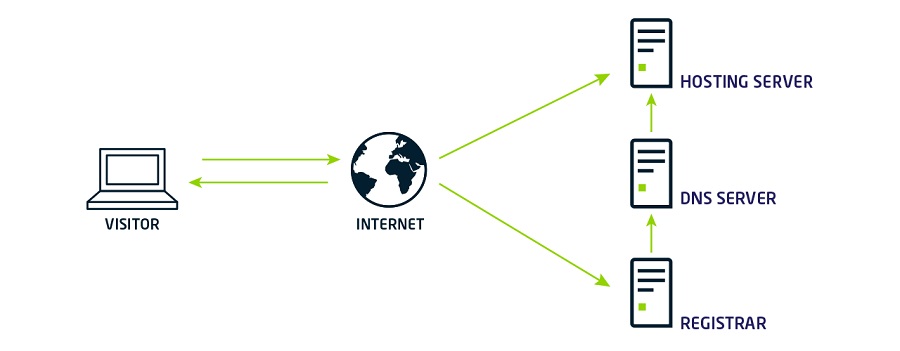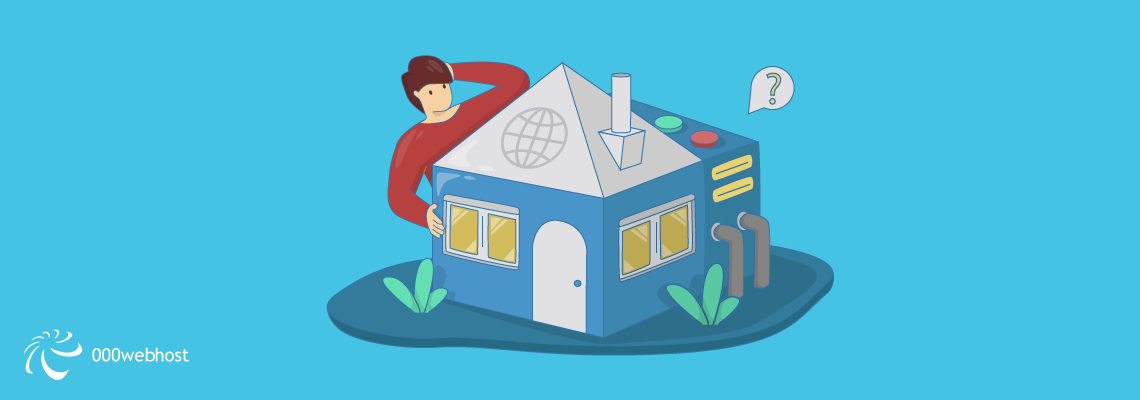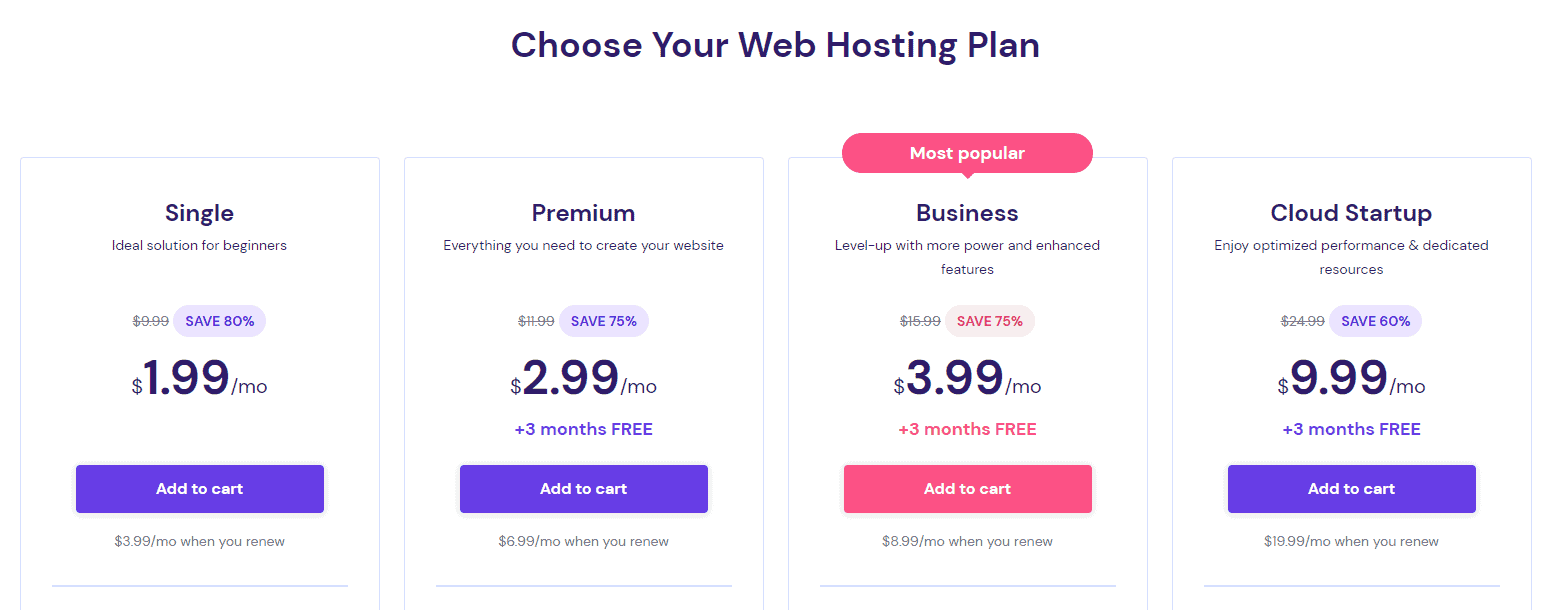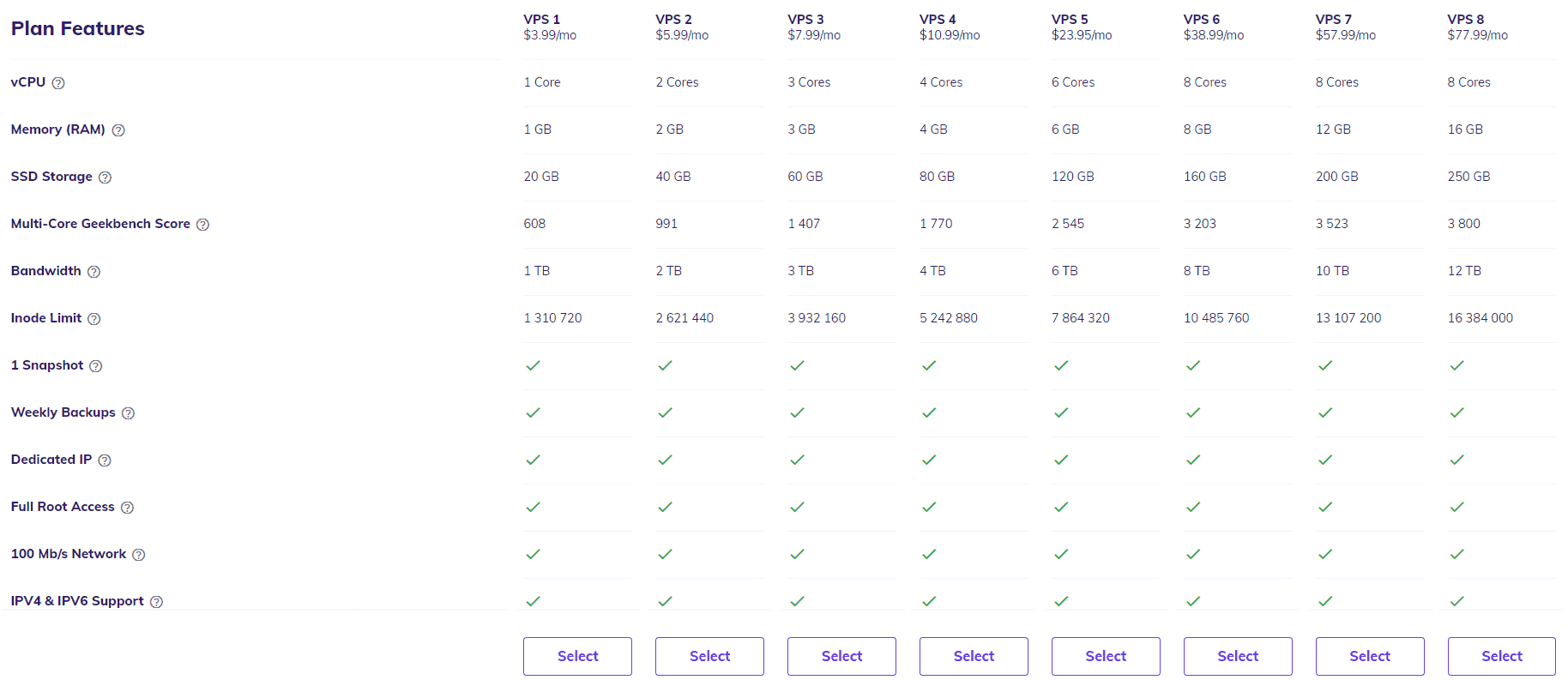Most people may already know what a website is. But, what is web hosting? Although it sounds less familiar, the name is quite self-explanatory. It is a service that allows you to post your website on the internet.
Let’s talk about this in detail, shall we?
What is Web Hosting, and how does it Work?
Web hosting comprises two main components: a domain name and a hosting provider.
To make it easier – think of web hosting as a house.
Your house has an address. In this case, a domain name is your virtual address. Visitors use domain names to access sites on the internet.
To get more specific, what identifies your website on the internet is actually an IP address. However, as it is hard to remember, a service called Domain Name System (DNS) lets you replace the IP address with a domain name.
For instance, instead of typing 50.57.247.173, you can type example.com to access a website. To get your own domain name, you need to purchase it from a domain registrar. Read Hostinger’s beginner-friendly guide explaining how to buy a domain name if you need help.
In most cases, a domain name has a year-long license, after which you can extend by paying the renewal fee.
While a domain name is the website’s address, a hosting provider is similar to the real estate agency from which you rented the house in the first place.
They rent out a server, where you store all your website’s data. Anytime your website is accessed, a server will load the data and show it to your visitors.
Furthermore, they also equip your website with security features and provide you with professional customer support.
So, here’s what happens when you access a website.
- You type in a domain name and press enter.
- The DNS will identify the name and point that to a specific IP address.
- The IP address locates the server on which your data is stored.
- The server on your hosting provider loads the data for your visitors.

The main component of web hosting
It’s as simple as that.
Sometimes you will need to purchase hosting services and a domain name separately. Sometimes it is a free domain, sometimes it is not. However, you don’t have to. A reliable hosting provider will include domain registration, DNS service, and server hosting all at once.
Here at 000webhost, we provide you with free web hosting and a free subdomain. For more premium features, you can upgrade to other hosting providers, such as Hostinger.
Different Types of Web Hosting
There are a few different types of web hosting. Being familiar with each type will help you make a better buying decision.
Shared Hosting
As the name suggests, you will share the same server with other websites, which means you will be sharing resources too.
Although shared hosting is usually the cheapest option, it is not optimal for bigger websites as a surge of traffic on the server may slow down or even crash your website. What is more, high traffic on neighboring websites can also decrease your website’s speed.
Shared hosting, however, is perfect for small websites or any sites that don’t expect huge traffic.
If you feel your website is slowing down, it might be the best time to upgrade to VPS hosting.
Virtual Private Server (VPS) Hosting
With VPS hosting, you will still share one physical server with other websites, but each website is separated by a virtual machine. In other words, you will have a private space on the server – enabling you to have more control over your website.
The best thing is each server hosts a smaller amount of websites – around 10 to 20 websites per server. All resources are also split evenly, so a surge of traffic from other websites won’t affect your performance.
This is the best option for fast-growing websites and businesses. Not to mention, VPS is scalable. If you need to get more features, you can do so immediately.
One thing to remember – managing a website with VPS requires a lot more technical knowledge. So if you are not experienced in website management or development, you might have to invest in hiring a professional.
Cloud Hosting
Cloud hosting is similar to VPS in the sense that each website has its own dedicated space.
However, unlike the previous two options, cloud website hosting doesn’t have a physical server. Instead, multiple computers are interconnected through the internet, forming a network of virtual servers called ‘the cloud’.
The fact that it doesn’t rely on one piece of hardware makes cloud hosting a lot safer from security threats.
What is more, cloud hosting is also more scalable compared to VPS, as more computers mean more resources. That being said, If your website or business is growing really fast, cloud hosting might be best in accommodating your needs.
Some hosting providers name their cloud hosting service as VPS hosting, mainly because they don’t offer a traditional VPS model anymore. Always make sure to double-check when making a purchase.
Dedicated Server Hosting
The last one is plain and simple – the whole server is dedicated to you only. It means that you’re free to use the resources as you wish – choosing the OS, allocating the amount of memory, customizing the hardware, and much more.
Blazing speed, more resources, and flexibility are guaranteed with dedicated hosting.
However, with a dedicated server, you require a lot of technical knowledge. This means that you might have to hire an experienced developer to help you manage your data.
Dedicated server hosting is only preferable if:
- You have very specific hardware needs
- You need the highest level of privacy for your data.
Conclusion
Web hosting is a service that stores your website’s data on a server. Without it, your site couldn’t be online. A key element of all web hosting is a website’s domain name – the address of your website.
When choosing a web hosting service, you can explore a couple of different picks:
- Shared web hosting. You share the resources with other websites on the same server. This is the best option for starters.
- VPS hosting. Resources are still shared, but you have a dedicated virtual space on the server. Good for bigger websites, however, it requires technical knowledge.
- Cloud hosting. Similar to VPS, but it uses multiple computers to power its virtual server. Choose this if your website is growing really fast.
- Dedicated server hosting. You rent the whole server all to yourself. It ensures the highest level of privacy and flexibility, but requires a lot of technical knowledge to manage it.











